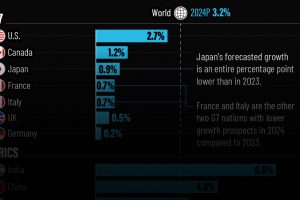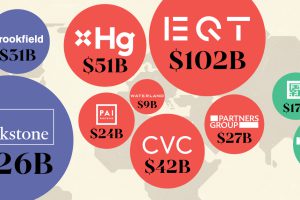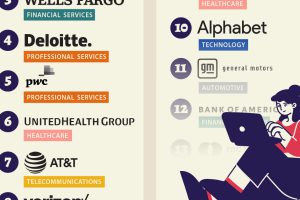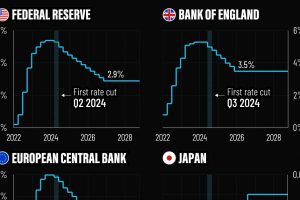Vancouver Real Estate Mania
On January 29th, 2016, Vancouver went crazy.
The story of a humble 86-year-old home in Vancouver’s Point Grey neighbourhood was widely circulated by national media outlets and became a lightning rod for local frustration with skyrocketing property values.
The “knockdown”, with its rotting walls and $2.4 million asking price, perfectly underscored how crazy the region’s overheated housing market had gotten.
A month later, the house was sold for $80,000 above its asking price, rekindling public outrage.
How did Vancouver reach this point?
This infographic’s purpose is to connect the dots between Vancouver’s history of speculation, demographic waves, public policy, and external pressures that have all had a hand in shaping today’s hot real estate market in the city.
Let’s start at the very beginning…
Chapter One: Birth of a Boomtown
In a surprise move in the late 19th century, the Canadian Pacific Railway announced that the tiny town of Granville would become the terminus of the future Trans-Canada Railway. Granville, with just 400 people, is now the nucleus of Vancouver – and the well-connected men who had conveniently purchased property in the area made a fortune as prices rocketed up.
By the close of 1888, the local newspaper was packed with property speculation ads, and Vancouver real estate companies outnumbered restaurants by a margin of over 250%.
These bets on real estate weren’t in vain. Vancouver actually outpaced all major West Coast cities in growth between 1900 and 1910. While Seattle and San Francisco grew at 194% and 22% respectively, Vancouver’s population soared by a clip of 271% over the same period.
Chapter Two: Expo 86
Hosting the 1986 World Exposition was a pivotal moment in Vancouver’s history. The legacy of Expo is far-reaching, including: rapid transit, new neighbourhoods, a connected seawall, increased investment, and a new stadium (BC Place).
The 70 hectare (173 acre) Expo site was carved out of industrial land and the former Canadian Pacific Railway yard. Once the fair ended, the provincial government looked to sell off the entire block of land for redevelopment.
In 1988, after recognizing the potential of the site, Hong Kong businessman Li Ka-Shing formed Concord Pacific and purchased the site for $320 million.
Chapter Three: Hong Kong Loves Vancouver Real Estate
In the 1990s, there was much trepidation in Hong Kong over the looming handover of the colony to China. Many people were looking to move themselves and their money to a more stable market. Concord Pacific, and Li Ka-Shing’s name, sparked enormous interest in the Vancouver real estate market.
Other Hong Kong businessmen also got in the development game in Vancouver. Cheng Yu-tung’s company built International Village and Sun Hung Kai Properties is now well-known for being the driving force behind Coal Harbour.
Immigration from Hong Kong, coupled with an influx of Canadians from other provinces, led to drastic home price increases during the early ’90s. The fabric of the city was changing, and existing residents were vocal about it. The “Monster House” debate raged in the local media throughout the decade.
Chapter Four: The Welcome Mat
During the same year as Expo 86, the Canadian Federal government and the Quebec government wanted to use immigration to bolster their economies. They created programs such as the Immigrant Investor Program (IIP) and the Quebec Immigrant Investor Program (QIIP) to attract wealthy foreigners.
Between the two programs, there were over 110,000 approvals to come to Canada between 2002 and 2014. (Note: From 2007 to 2012, the United States only accepted 19,433 wealthy immigrants through its EB-5 program)
The Quebec Loophole
A recent study tracked the addresses of 5,120 Quebec immigrant investors who arrived from 2000 to 2008. An astonishing 94% of the newly-arrived investors eventually had an address in British Columbia and most were living in the Vancouver area.
The Quebec government now has a quota of 1,330 applications per year from China. Assuming those applicants migrate to Vancouver at similar rates as in previous years, the flow of multi-millionaire immigrants will continue for some time.
Chapter Five: Vancouver’s Housing Feeding Frenzy
Fast forward to 2016. Vancouver is seeing record-breaking prices, and the momentum for single-family homes is showing no signs of slowing down.
In April 2016, the average detached home in Greater Vancouver sold for $1.82 million, which is a 30% increase year over year. That was not a typo – the price of a detached home in Vancouver is now nearly twice that of Greater Toronto ($968k), and multiples higher than Calgary ($540k) or Montreal ($343k).
Record high prices aren’t dampening sales though. In 2016, sales have been brisk with nearly 17,000 houses sold in the first four months of the year. Many of these have sold for significant sums above their asking prices.
Chapter Six: Business is Booming
In response to skyrocketing detached home prices, Vancouverites are increasingly living in condos. Residential development construction is practically propping up British Columbia’s economy.
BC had the highest GDP growth in the country in 2015, and it’s expected to put up strong numbers in 2016 as well. Between April 2015 and April 2016, BC accounted for 110,000 of Canada’s 144,000 net new jobs with construction leading the way.
Business is so good that the value of building permits broke a new city record in 2015 with over $3 billion. There were at least 10 major construction projects – each valued at more than $50 million – approved over the course of the year.
And Vancouver realtors? They’re doing well.
With so much money to be made selling property and condos, the Vancouver real estate industry is thriving. The Real Estate Board of Greater Vancouver says licensed membership is at an all-time high.
Chapter Seven: Locals are Getting Fed Up
The dream of owning a home is getting further out of reach even for well-off Vancouverites. Surging home prices and stricter down-payment rules mean that it can take over two decades to save up a down payment for a home.
Vancouverites seeking relief from the super-heated single family home prices won’t find it elsewhere in the market. The median condo price in Vancouver is up over 40% since 2014.
Renters are not immune to price increases either, as price-to-rent ratios are way out of whack in Metro Vancouver. According to real estate website Trulia, in nearby Seattle it takes 14.5 years of rent to equal the price of a house. In Vancouver, it takes 36.9 years.
Lastly, many residents worry that this red-hot demand is obliterating Vancouver’s character. Land values are so high that viable housing is often demolished to make way for new buildings. As a result, thousands of homes are torn down each year.
Chapter Eight: Is This Growth Sustainable?
The experts are far from reaching a consensus on whether Vancouver’s market can continue on as it is now.
On one hand, experts such as Stéfane Marion (Chief Economist, National Bank) say that growth in the working age population in Vancouver is 70% higher than the national average, and it can help sustain home price inflation. Meanwhile, Thomas Davidoff, an Associate Professor of Economics at UBC, points out that if Vancouver is a magnet for China, this housing run could continue for quite a while.
Davidoff may be onto something – there were 9,000 Chinese millionaires that emigrated from Mainland China in 2015, and there are 654,000 millionaires still in China today. The latter number is expected to double by 2025. It’s also noteworthy that in a recent poll by Barclays that 47% of Chinese millionaires expressed a desire to move abroad in the “next five years”.
The contrasting view, of course, is that Vancouver is in a bubble that is overdue for popping.
Marc Cohodes, a famous Wall Street short-seller we recently profiled in another recent chart we did on Canadian housing, argues that Vancouver is a casino in which residents feel pressured to play, otherwise they miss out. Meanwhile, David Madani, the Senior Canadian Economist at Capital Economics, says that severe overvaluation, high household debt, and overbuilding is going to make the housing correction end in a way that is deeper and more prolonged than initially feared.
The Bank of Canada has sounded the alarm on household debt recently, and “unsustainable debt” per household has soared in the country. Between 2008 and 2014, the amount of Canadian households with debt-to-income ratios greater than 250% jumped from 28% to 40% of all households.
Which province is home to the highest rate of households with “unsustainable debt”? BC, of course.
Vancouver’s parabolic prices may eventually cool down, but in the near-term, Vancouver real estate mania is here to stay.






